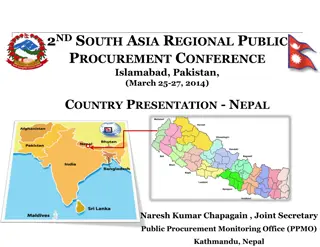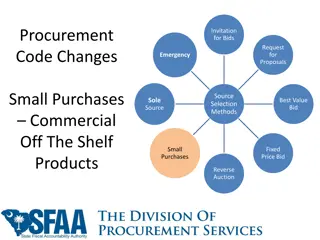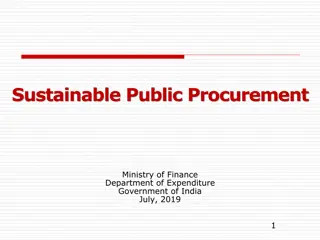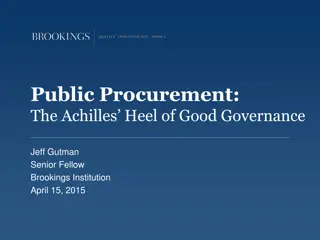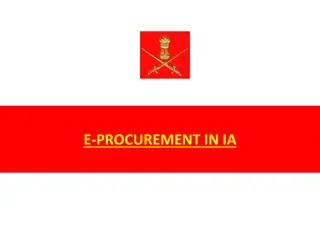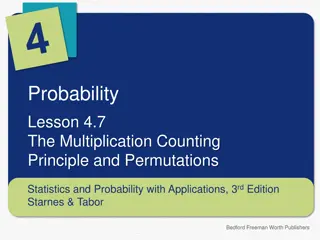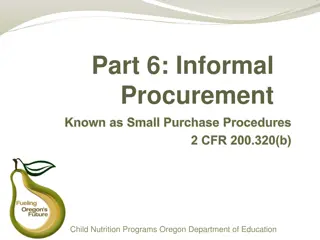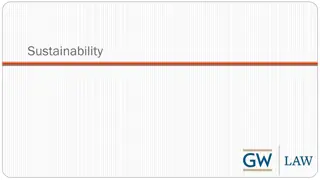Understanding the Reciprocity Principle in Public Procurement Markets
The concept of reciprocity in access to public procurement markets, particularly in the European Union, has gained prominence in recent years. This principle involves mutual opening obligations for public procurement markets while considering concessions and exceptions, such as excluding defense and security sectors. Discussions include the identification and coverage of the principle against third countries, elimination of restrictive procurement measures, and the scope of reciprocity principle implementation. The effectiveness and control of retaliatory measures are also key factors in this context.
Download Presentation

Please find below an Image/Link to download the presentation.
The content on the website is provided AS IS for your information and personal use only. It may not be sold, licensed, or shared on other websites without obtaining consent from the author. Download presentation by click this link. If you encounter any issues during the download, it is possible that the publisher has removed the file from their server.
E N D
Presentation Transcript
Reciprocity Reciprocity Principle Vincent Bouhier Principle Introduction - The reference to reciprocity in access to public procurement markets is an objective assumed for the several years by the European Union. - The reference to the reciprocity principle is more recent (Communication from the Commission. Guidance on the participation of third country bidders and goods in the EU procurement market (2019)) - Political will of member states to adopt an instrument of which guarantee access to the public procurement markets of third countries (position of the European Council of 21 March 2019) - Divergent positions of the Member States and the European institutions on the consequences of the reciprocity principle - New Amended proposal for a Regulation by the 29 January 2016, after failure of the proposal of the 21 march 2012. Adoption planned in the course of 2020.
I I- - The Identification of a reciprocity principle The Identification of a reciprocity principle An Extension of the rule - Systematically used in international trade agreements (Government Procurement Agreement (GPA) et Bilateral agreements) - Required in relations with other third countries (China, Russia ) - Written rules : Specifics provisions relating to public procurement market included in french Code de la commande publique Current negociations in the EU with the amended proposal for regulation An optional and symetric principle - An optional application of principle - Symmetry of opening obligations for the public procurement markets and the concessions and exceptions to the principle (Exclusion of defence and security markets)
II II- - The The coverage coverage of the of the principle principle The content of principle againts third countries - Reference to other principles: the application of the principles of transparency in access markets The application of the principle of equal treatment in access markets - Reference to subsequent acts Elimination of Restrictive procurement measure : the proposal regulation only aims a serious and reccurrent impairment. Persons covered - The third countrie for the adoption of general rule (legislative power, executive power) - the contracting authorities/entities by their implementation of the public procurement markets rules
III III- - The scope of The scope of reciprocity reciprocity principle principle The lack of general rule in positive law - Effectiveness subject to the approval of European Union regulation - The relevance of using a trade defense instrument (Commission initiative, interest party, strict deadline, graduate retaliatory measure) The rule of implementation - The priority givent to conciliation - The introduction the price adjustment measure - The control of the application of retaliatory measure
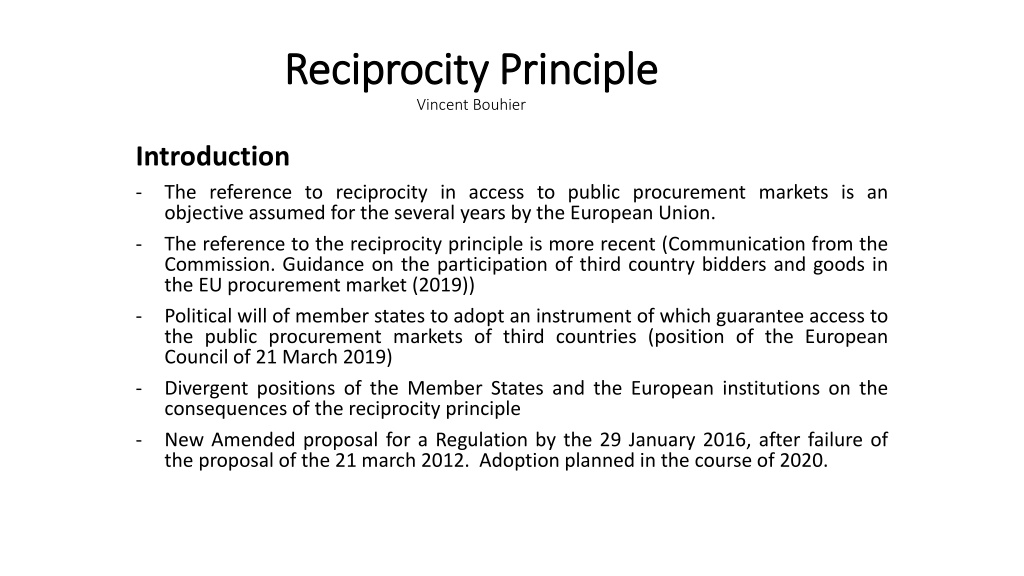





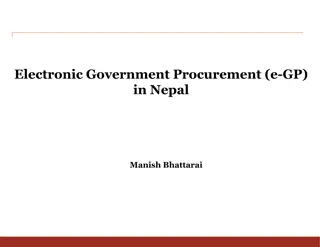



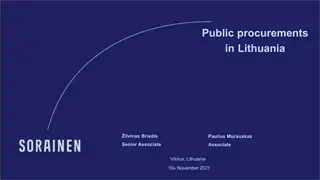

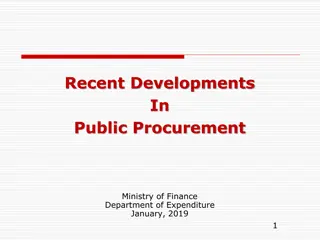

![Comprehensive Overview of Corruption Watch Submission on Public Procurement Bill [B18B-2023]](/thumb/138344/comprehensive-overview-of-corruption-watch-submission-on-public-procurement-bill-b18b-2023.jpg)
